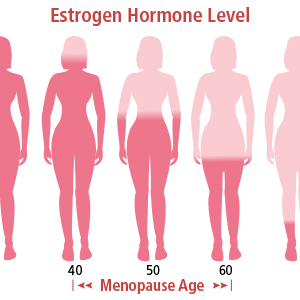Managing Menopausal Symptoms

Women spend a third or more of their lives in menopause.
While some women transition easily into menopause, many women experience symptoms that can feel overwhelming, uncomfortable, and even disruptive. These symptoms can impact your daily activities, sleep, mental health, and physical well-being.
The unpleasant symptoms that often accompany “the change” are a normal part of a phase called perimenopause.
What Happens During Perimenopause?

Women often use the word menopause when referring to their transition and symptoms. Instead, they’re likely in the perimenopause phase. Perimenopause is the time leading up to menopause, or the permanent end of menstrual periods.
During perimenopause, the supply of mature eggs in the ovaries is reduced, ovulation becomes irregular, and the production of the hormones estrogen and progesterone decline. The significant drop in estrogen is what typically causes the majority of the symptoms women experience.
Signs and symptoms may include:
- Hot flashes and/or night sweats
- Pain during intercourse
- A lower sex drive
- Heavier or lighter menstrual periods
- Urinary tract infections
- Dizziness that comes and goes
- Heart palpitations and fast heartbeat
- An increase in facial hair and thinning of hair on the scalp
- Fatigue, mood swings, insomnia, and nervousness
- And more
What Menopause Really Means

When a woman has gone 12 consecutive months without a menstrual period, she has officially entered menopause.
Other challenges women may face as they age may include:
- An increased risk for heart disease (heart disease is the number one cause of illness and death in the perimenopausal and postmenopausal stages)
- Bone loss
- Loss of muscle mass
- Fallen or prolapsed bladders
- Urinary incontinence
- Other urogynecological problems
- Increased risk for breast and colon cancer
Treatment Options for Perimenopause and Menopause Symptoms

The symptoms that can accompany perimenopause and menopause are normal and individual to each woman’s experience. But just because symptoms may be normal, doesn’t mean you have to endure discomfort or stress.
“There are many reliable and safe solutions for gynecologic challenges in this transitionary time,” shares Diana Curran, MD. “Your OB/GYN can work with you to develop a customized plan for your individual experience.”
Some of these treatments include:
- Hormone Replacement Therapy
- Medications
- In-office procedures
- Recommendations for lifestyle changes, such as diet and physical activity
Your OB/GYN can also keep you on track for important screenings, such as breast and colon cancer screenings, bone density testing, and more.
If it’s been more than a year since your last women’s well visit or you’re experiencing menopause-like symptoms, it’s time to schedule a visit with your trusted OB/GYN.
Find an OB/GYN Near You
Munson Healthcare OB/GYNs are experts in women’s health. From young adulthood through pregnancy and birth, and into menopause and beyond, we can help you keep your health on track through annual visits and screenings that can detect conditions early for optimal results and a healthy lifestyle.